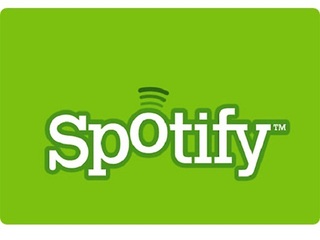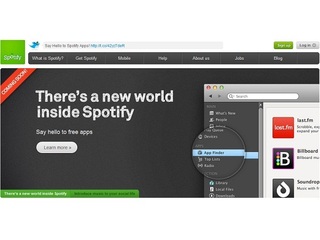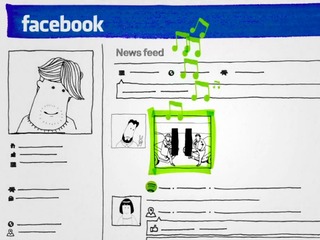
Spotify had a banner year... but at what cultural cost?
No one denies the awesomeness of Spotify's streaming music service, except maybe indie musicians

Love it or hate it: Spotify has had an impressive 2011.
Many look at Spotify's 15 million licensed tracks, streaming online for free at the click of a mouse, and say what's not to like?
Independent recording artists and labels, however, have had plenty to get mad about Spotify leading the charge in a culture that has devalued recorded music to the point of nil. Here's a round-up of the highlights of Spotify's (arguably infamous) banner year:
January saw Spotify partnering by creating an app for the Internet radio player Squeezebox, but its year didn't start to get into full swing until February, when rumors starting swirling about the company was seeking a $100 million funding round in preperation for their launch in the U.S. The company's move into the American market had been widely rumored in the latter half of 2010.
The founding round, headed by Kleiner, Perkins, Caulfield, & Byers, happened in June, in which the company was valued at $1 billion, while the U.S. launch happened in July.
In the meantime, March saw several Spotify members with free accounts report malware infections on the site, while April brought the imposition of limitations to free accounts, where non-paying members are only allowed 10 free hours of play per month, and only 5 plays per song. (Interestingly the blog post which originally announced these changes has since been taken down.)
Spotify and Facebook became BFFs in September, as was made abundantly clear during the latter's F8 conference, when a new integration of the two sites was announced. As part of Facebook's "Open Graph," Spotify song plays would be displayed in Facebook user's news feed. The feature was initially launched with an "opt-out," which was changed to an "opt-in" after numerous complaints.
But these weren't the only complaints surrounding Spotify's services in 2011. One UK-based independent music distributor STK pulled its 200 labels from Spotify's system in October, stating "[Spotify] provides poor revenue and have a detrimental affect on sales. Add to that, the feeling that their music loses its specialness by its exploitation as a low value/free commodity."
STK's pulling its catalog was prompted by a study conducted by the National Association of Recording Merchandisers (NARM), which found that online streaming services like Spotify discouraged music listeners from monetization of recorded music.
But such modest notes of complaint did not curtail Spotify's brand expansion, nor its popularity. November brought the company's integration of music apps, while in December it debuted an updated radio function. Overall, Spotify added 1.5 million paid subscriptions in 2011.
And yet, I still can't help but wonder at what cost Spotify's amazing services come...
For those independent artists smarting from the drastic devaluation of recorded music in our digital age, the mantra "This is the way of the world" just isn't good enough... Just as people rightly got up in arms over Mark Zuckerberg's 2010 contention that "The age of privacy is over," hopefully 2012 will see Spotify users start to ask who is paying for all this free music.
[Image Credit: appadvice.com]
Related News


Online music streaming giant Spotify to carry apps

Spotify, Netflix snuggle up to the new Facebook

